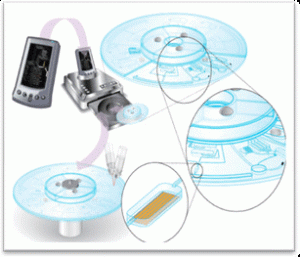By Kevin Land (CSIR) and Jan Korvink (IMTEK/FRIAS)
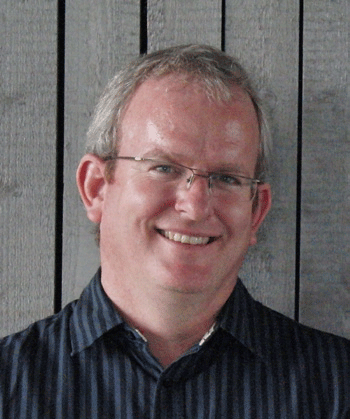 |
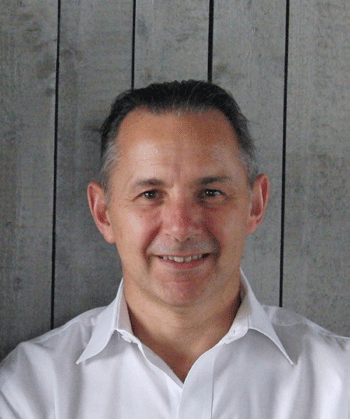 |
The first International Workshop on Microsystems Technologies for African Health took place in South Africa from the 7 – 11 September 2011, at a conference venue bordering the Kruger National Park. The workshop was situated in the heart of the Bushbuck Ridge community, a rural area where diseases such as HIV/AIDS, malaria and tuberculosis are common. The setting provided the ideal context for the workshop, bringing together diverse experts from all over the world to discuss strategies for developing medical diagnostic solutions.
People in both diagnostic and microsystems fields attended the workshop to formulate the need for diagnostic tools that would not only function in a well-equipped laboratory environment, but also in rural clinics and remote surroundings, where energy and water supplies are not guaranteed and where the population needs to be educated in considering these diseases as serious problems.
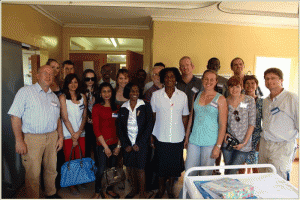
Delegates visited the Belfast Clinic: a typical example of a rural clinic in resource-limited areas of South Africa.
The workshop was preceded by a visit to a rural medical clinic, where delegates experienced the conditions and infrastructure available, providing a typical example of the various rural clinics found in South Africa and in other developing countries. To thank the clinic for the invaluable exposure to this reality, attendees contributed towards a collection at the closing of the workshop to enable a filing cabinet to be purchased and donated to the clinic to assist with patient data management.
The workshop opened with presentations by South African government representatives who depicted the country´s research infrastructure to the international delegates. In South Africa the burden of diseases is the driving force behind research, particularly in the fields of energy and health. South Africa spends more of its national resources than other countries in Africa in Research and Development, and as such envisages itself as an African leader in science and technology research. By encouraging local and international collaborations between universities and other research institutions, the governmental research organizations strive in a concerted effort to approach and eventually solve these detrimental health problems.
Delegates from India and Malaysia showed that a number of infectious diseases are not inherent to the African continent but are a burden across South-East Asia. Poverty in the majority of the population hinders access to health care in most Asian and African countries. In India, for instance, 75% of the population cannot spend more than a total of 20 € per year on medical assistance, which can be classified as health care, diagnosis, or treatment. This implies that this majority percentage of the population (equaling approximately 900 million people in India alone) will not have access to health care. In addition, poverty and lack of access to the health system by the greater part of the population results in many diseases being under-diagnosed, meaning that the full extent of the burden of these diseases is unknown in Africa and South-East Asia. This emphasizes the vital need for a collaborative and systemic approach in addressing health issues, as well as for lower cost diagnostic tools for diagnosing diseases in resource poor populations.
During the sessions and discussions on the first day of the workshop it became clear that the major challenges in the development of new diagnostic tools would be the implementation of these tools in a feasible manner in resource poor populations. Having listened to the needs stated by the South African government representatives and the clinicians, and having visited a rural clinic and laboratory – clarifying the limitations of scientific and medical possibilities in rural areas in Africa – several of the engineering delegates adapted their presentations for the next sessions, omitting costly and complicated solutions and focusing on the ones that could have an impact for rural and remote surroundings such as those found throughout Africa.
The presentations by micro-engineers, chemists, physicists and biochemists focused on microsystems devices, microfluidics and lab-on-a-chip technologies suitable for diagnostics in underdeveloped regions. Many competing technologies were described that could be, or have been, applied to HIV/AIDS, tuberculosis or malaria testing. These included the lab-on-a-disc CD platform using centrifugal micro-fluidics, and paper-based micro-fluidic devices making use of wicking as the driving force, either in the form of simple one-dimensional devices or devices with more intricate designs. These technologies are designed to be complimented by appropriate biochemical assays that detect diseases using biomarkers. Methods making use of colour changes, electrical charges, and fluorescence were presented as possible detection techniques.
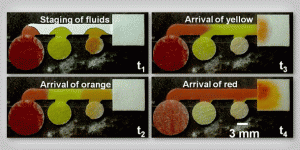
Examples of paper-based technologies being developed for low-cost and disposable implementation of disease diagnostics. Courtesy of Paul Yager (University of Washington)
Many of the technologies presented can be or have the potential to be connected to a cell phone. This could provide an ideal platform for use in regions where medical and transport infrastructures are missing, but where the mobile phone network infrastructure is intact and comparable to developed countries, as is the case in Africa. By leveraging cell phones as a platform for medical diagnostics, connectivity between the clinician or nurse performing the test and a central laboratory making the diagnosis and collecting important statistical data can be realized. Smartphones have considerable computing power to perform image analysis, and built-in cell phone cameras can be adapted to function as microscope objectives. Publications using these ideas have already been written, and show the potential of cell phones to become efficient front-ends for driving sophisticated diagnostics into the rural medical system.
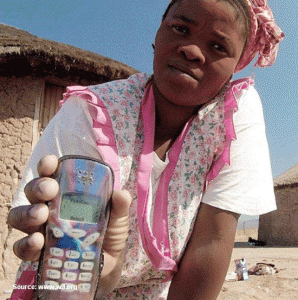
The potential of using mobile phones as a link between the developing world and access to improved and efficient healthcare.
This unique workshop, which combined the knowledge of leading scientists from diverse disciplines, stimulated the delegates into widespread discussions, not only during the workshop sessions, but also during open discussion rounds, meals, breaks and the excursions to the rural clinic and laboratory. As a consequence the researchers established new scientific networks, and believe that stemming from these networks, more focused research projects will evolve that may have a positive impact on the disease burden in Africa. It was decided to start a website forum for the community which aims to simplify the network of key players, document specifications and standards and advertise opportunities for internships, jobs, projects, funding, and clinical studies. It was decided to repeat the workshop in 2013, with the aim to include delegates from more African countries, and to form a workshop committee that represents the key players in this arena. A website (https://sites.google.com/site/micromedcomms/) for the next workshop will be launched early in 2012, and will give updated information and the chance for participants to provide inputs.


